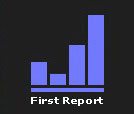First Report Customer Care
All time: 4.6
Latest / Last 30 Days: 5.0
528 Reviews
All time: 4.6
Latest / Last 30 Days: 5.0
528 Reviews
What a Company Credit Check Shows
Credit checks are a business-to-business process used to ascertain the financial security of a company in order to make an informed decision on the level of financial risk. Performing checks is becoming more common particularly in today’s tough economic climate where on average 1 in 3 small businesses (a business with less than 50 employees and an annual turnover lower than £5.6 million) ceases trading within their first year. Organisations need to assess the likelihood of a client business being able to pay for their goods or services in full and on time and in turn make informed calculations on which payment terms to agree.
For small business credit control, a getting credit check need not be a daunting prospect and although each check is slightly different depending on the financial provider used, the basic information that can be seen is typically the same.
Check any company
Information available
On most credit check documents, the company information will be shown to include the name and address, telephone number, website, age of the company, industry type and director information. This will normally be placed at the top of the document.
An assessment will determine the recommendation for the maximum level of credit and will be visible together with the total predicted sum that the company has to pay out to its creditors and suppliers over a 30-day period.
Failure odds over the next 12 months may be available to view showing the chances of the company going out of business. The worse the odds, the greater the failure risk.
Risk scores
A risk score will be shown on the report which details all financial information necessary to make informed decisions on whether to do business with the company in credit terms or select to receive upfront payments for zero risk.
The credit check will determine how credit worthy the business is by producing a score and the likelihood of it becoming insolvent within the next 12 months. A credit risk score is usually determined using a either alpha or numerical ratings.
Sometimes no score is available which could mean the business has stopped trading, hasn’t filed any accounts, has accounts that are too old or is simply too new and therefore hasn’t enough information to be able to calculate a score.
Knowing if a company pays its suppliers on time can be an important deciding factor on offering credit. The risk score may take acccount of how many days (if any) that the business goes over its payment deadline; in other words, its late payment behaviour. The same section will also show if there are any county court judgements (CCJs) which could raise a concern over credit worthiness.
Director information
Information on company directors is important particularly with new small businesses who don’t have a long term track record of trading. The credit report will show information on who is running the company, their financial track record and details of any share holdings.
Financial comparisons
Even if a small business is financially solvent, a concern could be that its success is reducing year on year. On the credit report, there will be a section showing comparisons of financials and the percentage of any change up or down. A huge percentage reduction in turnover could suggest trouble on the horizon.
Similarly, if the company has applied to many creditors or for bank loans then this could be a cause for concern; although this has to be taken in the context of the overall financial status - loans to fund growth and expansion are positive. The credit report may also show if other businesses have performed searches on the company within the last 12 months.
Using the information
Each supplier will have a different method in determining how to view the credit worthiness of a business and the associated risk. This is not usually something that can be determined in advance so one company may offer credit while another may decline the request. Each company will, however use the information to paint an overall picture so if you are a small business, it may be worth performing a credit check on your own business to fully view and understand the information held about your business.
See more credit tips and information.
In using this service you agree to the Terms and Conditions
© 2025 First Report Ltd

